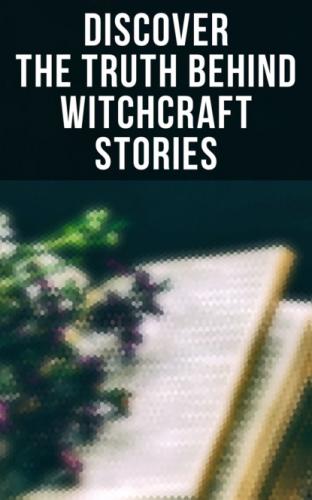He was buried, on the following evening, in the chancel of Walton Church, where Elias Ashmole, a month later, placed a slab of fair black marble (‘which cost him six pounds four shillings and sixpence’), with the following epitaph, in honour of his departed friend: ‘Ne Oblivione conteretur Urna Gulielmi Lillii, Astrologi Peritissimi Qui Fatis cessit, Quinto Idus Junii, Anno Christi Juliano, MDCLXXXI, Hoc illi posuit amoris Monumentum Elias Ashmole, Armiger.’ There is a pagan flavour about the phrases ‘Qui Fatis cessit,’ and ‘Quinto Idus Junii,’ and they read oddly enough within the walls of a Christian church.
There are two sides to every shield. As regards our astrologer, the last of the English magicians who held a position of influence, let us first take the silver side, as presented in the eulogistic verse of Master George Smalridge, scholar at Westminster. Thus it is that he describes his hero’s capacity and potentiality. ‘Our prophet’s gone,’ he exclaims in lugubrious tones—
‘No longer may our ears
Be charmed with musick of th’ harmonious spheres:
Let sun and moon withdraw, leave gloomy night
To show their Nuncio’s fate, who gave more light
To th’ erring world, than all the feeble rays
Of sun or moon; taught us to know those days
Bright Titan makes; followed the hasty sun
Through all his circuits; knew the unconstant moon,
And more constant ebbings of the flood;
And what is most uncertain, th’ factious brood,
Flowing in civil broils: by the heavens could date
The flux and reflux of our dubious state.
He saw the eclipse of sun, and change of moon
He saw; but seeing would not shun his own:
Eclipsed he was, that he might shine more bright,
And only changed to give a fuller light.
He having viewed the sky, and glorious train
Of gilded stars, scorned longer to remain
In earthly prisons: could he a village love
Whom the twelve houses waited for above?’
The other side of the shield is turned towards us by Butler, who, in his ‘Hudibras,’ paints Lilly with all the dark enduring colours which a keen wit could place at the disposal of political prejudice. When Hudibras is unable to solve ‘the problems of his fate,’ Ralpho, his squire, advises him to apply to the famous thaumaturgist. He says:
‘Not far from hence doth dwell
A cunning man, hight Sidrophel,
That deals in Destiny’s dark counsels,
And sage opinions of the Moon sells;
To whom all people, far and near,
On deep importances repair:
When brass and pewter hap to stray,
And linen slinks out o’ the way;
When geese and pullen are seduced,
And sows of sucking pigs are choused;
When cattle feel indisposition,
And need th’ opinion of physician;
When murrain reigns in hogs or sheep,
And chickens languish of the pip;
When yeast and outward means do fail,
And have no pow’r to work on ale;
When butter does refuse to come,
And love proves cross and humoursome;
To him with questions, and with urine,
They for discov’ry flock, or curing.’
After this humorous reductio ad absurdum of Lilly’s pretensions as an astrologer, the satirist proceeds to allude to his dealings with the Puritan party:
‘Do not our great Reformers use
This Sidrophel to forebode news;
To write of victories next year,
And castles taken, yet i’ th’ air?
Of battles fought at sea, and ships
Sunk, two years hence, the last eclipse?’
The satirist then devotes himself to a minute exposure of Lilly’s pretensions:
‘He had been long t’wards mathematics,
Optics, philosophy, and statics;
Magic, horoscopy, astrology,
And was old dog at physiology;
But as a dog that turns the spit
Bestirs himself, and plies his feet
To climb the wheel, but all in vain,
His own weight brings him down again,
And still he’s in the self-same place
Where at his setting out he was;
So in the circle of the arts
Did he advance his nat’ral parts ...
Whate’er he laboured to appear,
His understanding still was clear;
Yet none a deeper knowledge boasted,
Since old Hodge Bacon and Bob Grosted.’
(Robert Grostête, Bishop of Lincoln (temp. Henry III.), whose learning procured him among the ignorant the reputation of being a conjurer.)
‘He had read Dee’s prefaces before
The Dev’l and Euclid o’er and o’er;
And all th’ intrigues ’twixt him and Kelly,
Lascus, and th’ Emperor, would tell ye;
But with the moon was more familiar
Than e’er was almanack well-willer;
Her secrets understood so clear,
That some believed he had been there;
Knew when she was in fittest mood
For cutting corns or letting blood ...’
Continuing his enumeration of the conjurer’s various and versatile achievements, the poet says he can—
‘Cure warts and corns with application
Of med’cines to th’ imagination;
Fright agues into dogs, and scare
With rhymes the toothache and catarrh;
Chase evil spirits away by dint
Of sickle, horse-shoe, hollow flint;
Spit fire out of a walnut-shell,
Which made the Roman slaves rebel;
And fire a mine in China here
With sympathetic gunpowder.
He knew whats’ever’s to be known,
But much more than he knew would own ...
How many diff’rent specieses
Of maggots breed in rotten cheese;
And which are next of kin to those
Engendered in a chandler’s nose;
Or those not seen, but understood,
That live in vinegar and wood.’
In the course of the long dialogue that takes place between Hudibras and the astrologer, Butler contrives to introduce a clever and trenchant
